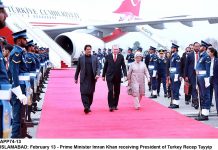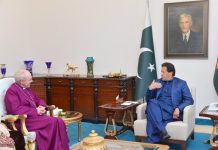
At a major UN summit in Geneva, Pakistan proposed a global system to trade plastic credits and fund cleanup efforts. Climate Change Minister Dr. Musadik Malik introduced the idea during the fifth round of negotiations for a global plastic pollution treaty. His proposal called for a “global plastic fund” that allows polluting nations to compensate those affected by plastic waste. Delegates from several countries responded positively to the plan.
Dr. Malik criticized the current treaty draft for lacking a way to make polluters pay. He pointed out that small island nations, which produce little plastic, still suffer from global waste. He also urged developed countries to stop dumping their plastic in nations like Pakistan. Speaking at a separate forum, he said it was unfair that wealthy countries consuming plastic also receive the most green financing.
جنیوا: وفاقی وزیر موسمیاتی تبدیلی ڈاکٹر مصدق ملک نے اقوام متحدہ کے تحت منعقدہ پلاسٹک معاہدے کے غیر رسمی وزارتی مکالمے میں عالمی ماحولیاتی چیلنجز اور وسائل کی غیر منصفانہ تقسیم پر گہرے خدشات کا اظہار۔
انہوں نے کہا کہ کائنات میں کئی سیارے اور کہکشائیں زندگی سے خالی ہیں اور اگر… pic.twitter.com/MAApBxwFJR
— Senator Musadik Malik (@Team_Musadik) August 13, 2025
Frustrated with slow progress, Dr. Malik expressed deep disappointment in the UN’s handling of the negotiations. He said talks were stuck on trivial issues like punctuation instead of real solutions. “They’re just squabbling over semi-colons,” he said. The climate minister added that injustice to nature would lead to consequences for all.
He also criticized the double standards in global environmental policies. Using coal as an example, he questioned how some nations are allowed to use it while others are punished. “Sometimes, naive as I am, I don’t get the geopolitics of the world,” he admitted. He stressed that plastic pollution should not become another victim of global inequality.
The Geneva summit, attended by 184 countries, has been billed as the most important environmental deal since the 2015 Paris Agreement. Yet, it has failed to define plastic pollution or agree on a clear path forward. Activists warn that producers are dragging their feet, while countries most affected by plastic waste fight for meaningful change.










